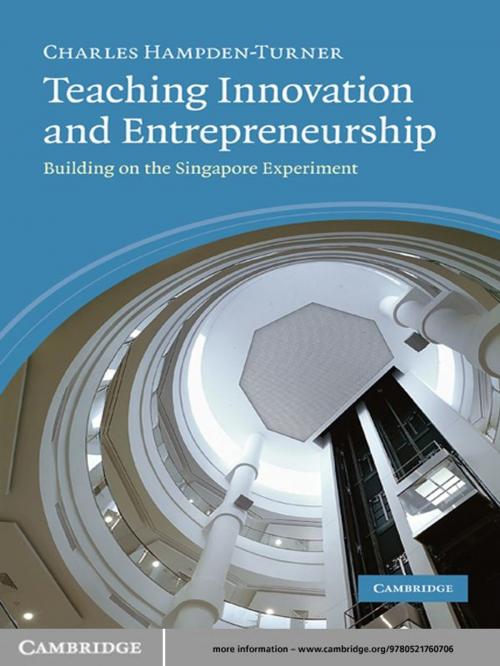Teaching Innovation and Entrepreneurship
Building on the Singapore Experiment
Business & Finance, Career Planning & Job Hunting, Entrepreneurship, Entrepreneurship & Small Business| Author: | Charles Hampden-Turner | ISBN: | 9780511849602 |
| Publisher: | Cambridge University Press | Publication: | October 29, 2009 |
| Imprint: | Cambridge University Press | Language: | English |
| Author: | Charles Hampden-Turner |
| ISBN: | 9780511849602 |
| Publisher: | Cambridge University Press |
| Publication: | October 29, 2009 |
| Imprint: | Cambridge University Press |
| Language: | English |
Is it possible to teach someone to be an entrepreneur? Is innovation something that can be assessed and taught in a classroom? Teaching Innovation and Entrepreneurship answers these and other questions by focusing on a teaching experiment in Singapore at Nanyang Technological University, wherein classes of English-speaking Singaporeans and Mandarin-speaking students from the People's Republic of China were subjected to an 'entrepreneurial eco-system'. Extending from the west coast of the USA to Singapore and Shanghai, this programme subjects students to a wide range of activities, including a four-month business simulation game where teams of students select their favourite inventions and pitch them to real venture capitalists with the inventors present. Drawing on the lessons learned from this highly successful experiment, the book argues that not only is it possible to describe the innovative process, we can also teach it, measure it, evaluate it and model it.
Is it possible to teach someone to be an entrepreneur? Is innovation something that can be assessed and taught in a classroom? Teaching Innovation and Entrepreneurship answers these and other questions by focusing on a teaching experiment in Singapore at Nanyang Technological University, wherein classes of English-speaking Singaporeans and Mandarin-speaking students from the People's Republic of China were subjected to an 'entrepreneurial eco-system'. Extending from the west coast of the USA to Singapore and Shanghai, this programme subjects students to a wide range of activities, including a four-month business simulation game where teams of students select their favourite inventions and pitch them to real venture capitalists with the inventors present. Drawing on the lessons learned from this highly successful experiment, the book argues that not only is it possible to describe the innovative process, we can also teach it, measure it, evaluate it and model it.















